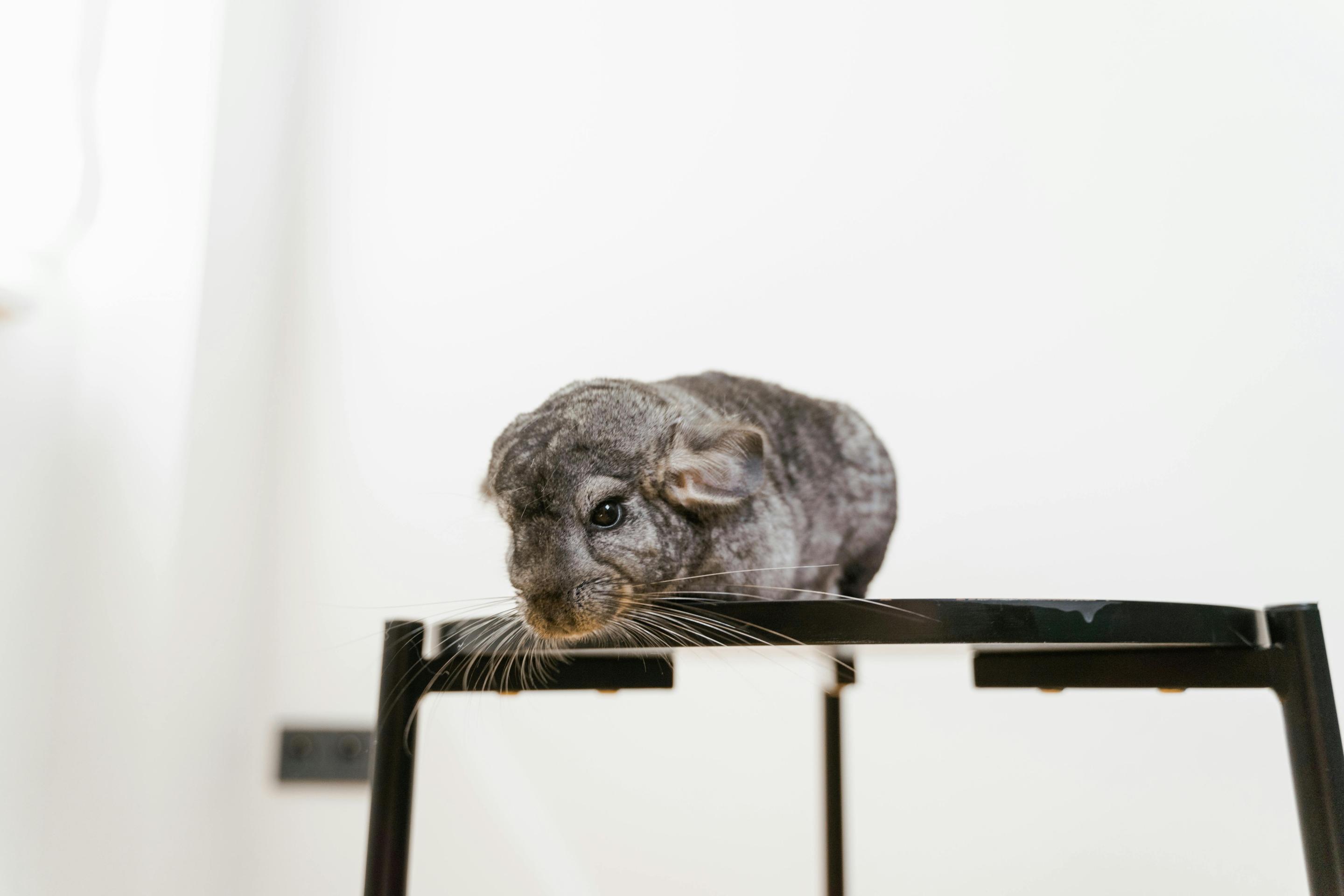Chinchillas are adorable, playful pets known for their soft fur and lively personalities. However, like all animals, they can be prone to certain health issues. Understanding the common illnesses in chinchillas and their symptoms is crucial for ensuring your pet's health and well-being. Here’s what you need to know.

1. Digestive Issues
Symptoms
- Diarrhea or loose stools
- Lack of appetite
- Bloating or swollen abdomen
Causes
Digestive issues can be caused by stress, dietary changes, or consuming inappropriate foods. Chinchillas have sensitive digestive systems, so a high-fiber diet of hay and specially formulated pellets is essential.
Prevention and Treatment
- Diet: Ensure a consistent diet rich in hay and avoid sudden changes in food.
- Veterinary Care: If symptoms persist, consult a veterinarian. Dehydration can occur quickly, so prompt treatment is essential.
2. Dental Problems
Symptoms
- Difficulty eating
- Excessive drooling
- Weight loss
- Pawing at the mouth
Causes
Chinchillas have continuously growing teeth, and improper diet or lack of chewing materials can lead to overgrown teeth (malocclusion).
Prevention and Treatment
- Chew Toys: Provide chew toys made of safe materials to help wear down their teeth.
- Regular Check-ups: Schedule dental exams with your vet. If dental issues arise, your veterinarian may need to trim your chinchilla’s teeth.
3. Respiratory Infections
Symptoms
- Sneezing or coughing
- Nasal discharge
- Labored breathing
- Lethargy
Causes
Respiratory infections can occur due to poor ventilation, exposure to dust, or extreme temperature changes.
Prevention and Treatment
- Environment: Keep your chinchilla’s living area clean and well-ventilated.
- Veterinary Care: If you suspect a respiratory infection, seek veterinary care promptly, as these conditions can worsen quickly.
4. Heat Stress
Symptoms
- Lethargy
- Excessive panting
- Loss of appetite
- Behavioral changes
Causes
Chinchillas are sensitive to heat, and high temperatures can lead to heat stress or heatstroke.
Prevention and Treatment
- Temperature Control: Keep your chinchilla in a cool, well-ventilated environment. The ideal temperature is between 60°F and 70°F (15°C to 21°C).
- Emergency Care: If you suspect heat stress, move your chinchilla to a cooler area and provide water. If symptoms persist, consult a veterinarian.
5. Fur Mites and Skin Conditions
Symptoms
- Excessive scratching or grooming
- Bald patches
- Skin irritation or redness
Causes
Fur mites or other skin parasites can lead to discomfort and skin issues in chinchillas.
Prevention and Treatment
- Regular Check-ups: Regularly inspect your chinchilla’s skin and fur for signs of irritation.
- Veterinary Care: If you notice any symptoms, consult your veterinarian for appropriate treatment, which may include medicated baths or topical treatments.
Being aware of these common illnesses can help you take proactive steps to ensure your chinchilla stays healthy and happy. Regular veterinary check-ups and a proper diet are essential components of your pet's care.
If you have questions and you'd like to reach out to us, you can call us directly at (602) 833-7511, or you can email us at [email protected]. Don't forget to follow us on social media Facebook, Instagram.
